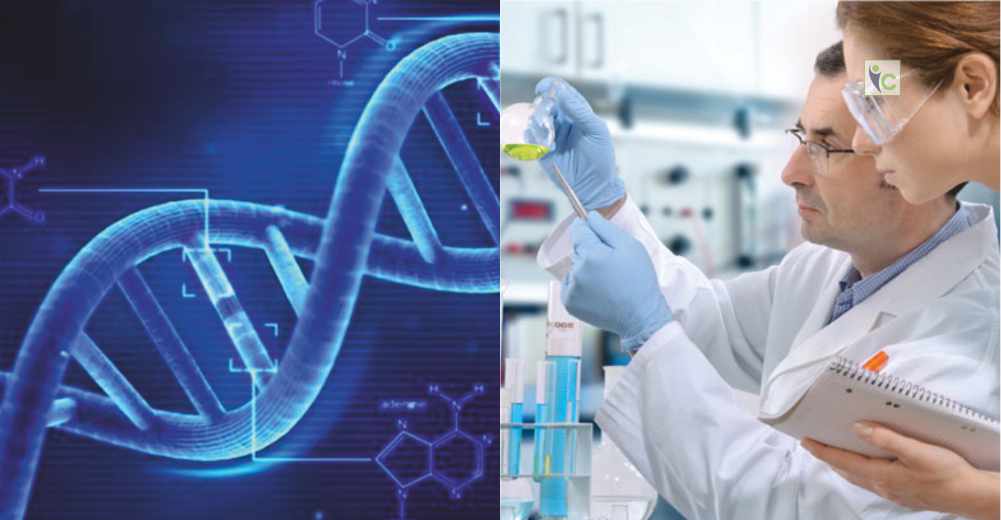Molecular diagnostics
Molecular diagnostics has emerged dramatically over the last two decades, as advanced technologies have driven this industry towards the next level of significance. Companies which already have adopted molecular diagnostic methods are now benefitted by increased accuracy and improved sensitivities in their tests compared to others. These new methods have greatly enhanced the discovery of many microbial infections, as well as genetic illnesses. Those who were hesitating due to the challenges and expense of opening a molecular lab now run the risk of being at a competitive disadvantage.
Molecular Diagnostics Industry
Molecular diagnostics has paved way for collaboration among many companies to add up their strengths. Through the collaboration, they intend to strengthen their hold in the molecular diagnostic market and develop an integrated clinical workflow solution and provide mass access to molecular diagnostics. Tie-ups with companies from other domains are mainly aimed at marketing of diagnostic tests. Only a handful of companies controlled more than two-thirds or more of the market for molecular tests. Companies like Roche will continue to lead the product portfolio includes molecular diagnostic tests for oncology, virology, microbiology, and blood screening. Multiple insurance providers are associated with them as payers of high-end medical tests.
Emerging Market Led by DNA Testing
The global molecular diagnostics market has reached beyond six billion USD in recent times according to some business reports. New technologies, innovations in medical science and expanded applications for tests have been fueling steady growth in the field. The business scope for it has its spectrum is not limited to one field of study. Molecular techniques are utilized in diverse fields like biochemistry, cellular sciences, genetics, infectious disease, oncology, hematology, and pharmacology.
Majority of the market for testing is derived from blood screening and tests related to infectious diseases. Personalized medicine is the new trend emerging with technologies that depend on DNA sequencing and molecular diagnostics. DNA sequencing is becoming a primary reason for the growth of molecular diagnostics. Personalization is the best when the approach to patients care is preventive care, which relies on proper diagnostic care or therapeutic remedies.
Clinical Testing Goes Molecular
Opening a molecular lab is a complex project demanding high-end instruments and expert to operate them. Setting up a sophisticated molecular lab is easier today because of the developments in the technology. Complex tests and bulky equipment are becoming more digital and user-friendly, gradually loaded with automated functioning. It also offers monitoring and control systems to ensure quality results.
It’s been more challenging to demonstrate the clinical utility of tests for broad patient populations. Targeted tests will continue to be the first choice for the majority of the patients. It will be more imperative than ever for clinical labs to have moldable solutions, with both targeted tests available.
A major challenge in the form of Antibiotic resistance is bound to have a long-term impact on the molecular diagnostics space. There are three elements – an integrated approach of rapid testing, antimicrobial stewardship programs, and clear actions based on results, which are required to address such a public health crisis.
Molecular diagnostics is advancing to provide most laboratory tests in infections and genetics. Genome sequence databases within and between species provide the information necessary to develop sensitive and specific diagnostic assays. In fact, microorganisms are nowadays classified on the basis of sequence rather than phenotype.
Variety of Products and Tests
Today, companies aim to provide precision medicine with molecular testing solutions. The detection of common infectious diseases is easier and the monitoring of treatment efficacy through specific assay and selection of individualized treatment options. Advanced products come with the capability to detect viruses, bacteria, fungi, and parasites simultaneously. Real-time PCR products are user-friendly and operate with one-step.
Diagnosis of molecular level offers various products like individual buffers and enzymes and sample preparation reagents. Real-time PCR Kits, which allow conducting fully designed PCR assays and Bio-line molecular reagents, are regularly used for a range of transmittable disease testing.
Biomarkers are objectively measured characteristics or indicators to monitor certain biological or pathological process. Biomarkers can be any substance or molecule – such as whole cells, enzymes or hormones. These are also used to test the pharmacological responses to therapy.
Traditional culture methods are important in the detection and analysis of pathogen. Medical investigation of specific treatment sensitivities like antibiotic resistance is carried out through molecular diagnostics. Moreover, some of the companies offer high-end service and advanced tests of gene expression for detection and measurement of cancer.
Operational Efficiency for Labs
The two opposite trends of centralization and decentralization are emerging simultaneously. It will continue to reshape molecular diagnostic testing. Already, some tests are taken to large reference labs from local clinical labs for the economies of scale they can offer. The tests which need to be carried out within time constraints move towards the point of impact and medical teams will have timely results available. These movements make the most sense for patient care from healthcare and cost point of view. Doctors can get the test result more quickly when it is important, and tests that can be delayed will save the cost by large centralized labs.
The Road Ahead for Diagnosis
A common theme for healthcare in the coming years will be high efficiency through automated and easy-to-handle techniques combined with optimized sample preparation. Large research-based hospitals have already begun integrating molecular testing methods into their clinical labs with advanced processes. Technology has made new molecular diagnostic methods faster and less complex.
Some of these tests are now automated and commercially available at low cost. Even smaller labs trying to acquire molecular capabilities with advanced technologies because they can benefit from simpler, easier to use, labor-saving systems. The powerful tools and more accurate detection of disease are giving the laboratories a key role in the emerging field of personalized medicine. Molecular diagnostics capability is set to become a game changer for clinical laboratories.















